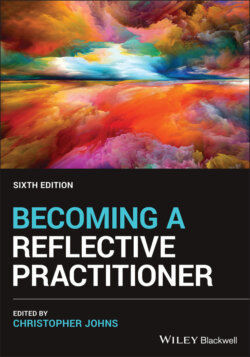Читать книгу Becoming a Reflective Practitioner - Группа авторов - Страница 65
Tapping the Tacit
ОглавлениеWriting may be difficult for practitioners because much of their knowing is tacit and not easily explainable (Schön 1983). In other words, practitioners may struggle to write what they know. This can be frustrating. Schön (1983, p. 49) writes:
When we go about the spontaneous intuitive performance of the actions of everyday life, we show ourselves to be knowledgeable in a certain way. Often we cannot say what it is we know. When we try to describe it we find ourselves at loss, or we produce descriptions that are obviously inappropriate. Our knowing is ordinarily tacit, implicit in our action and in our feel for the stuff with which we are dealing. It seems to right to say that our knowing is in our doing.
Writing brings tacit knowing to the surface like a bubbling underground brook. Holly (1989, p. 71) writes:
It [keeping a reflective journal] makes possible new ways of theorizing, reflecting on and coming to know one’s self. Capturing certain words while the action is fresh, the author is often provoked to question why… writing taps tacit knowledge; it brings into awareness that which we sense but could not explain.
Whilst I draw the reader’s attention to the idea of tacit knowing, in effect, it is not an issue the practitioner should worry about when writing a description. It becomes more of any issue in responding to reflective cues, as explored in Chapter 4.
